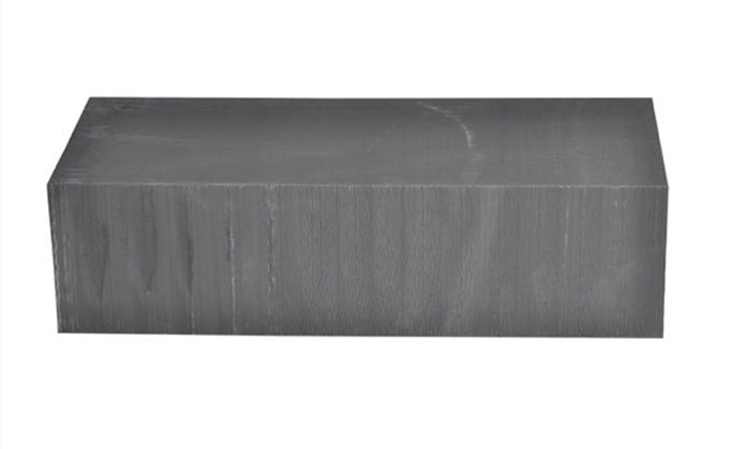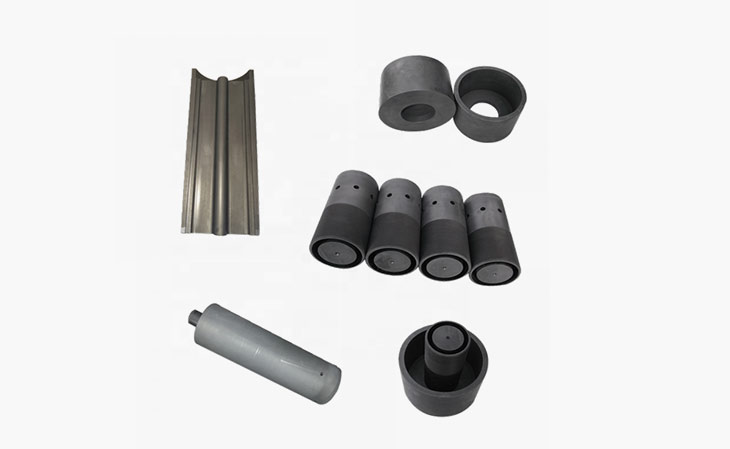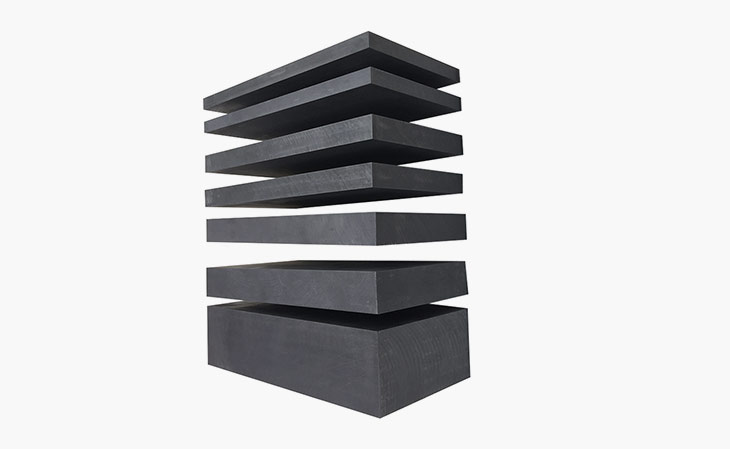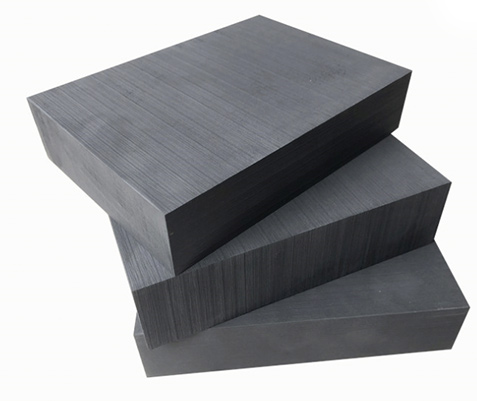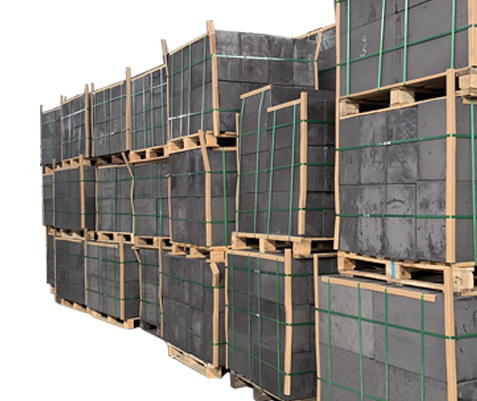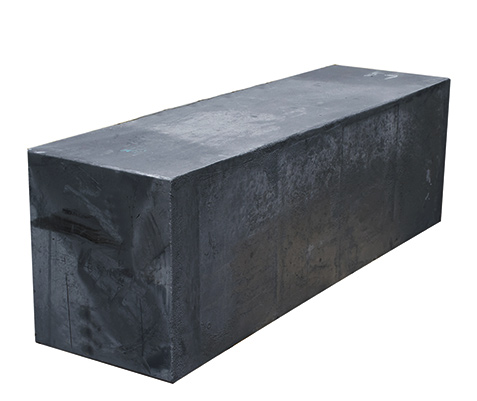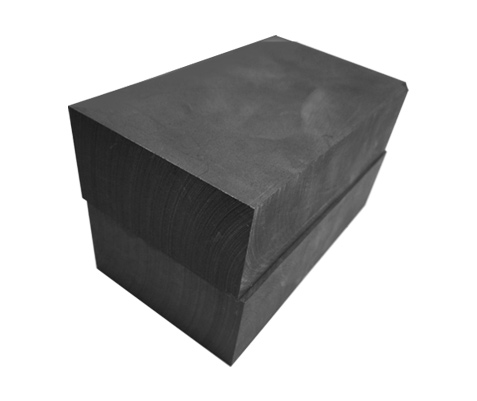Graphite blocks, often referred to as carbon graphite blocks, are versatile and essential components in various industrial applications. Their exceptional properties, such as high-temperature resistance, electrical conductivity, and mechanical strength, make them indispensable in numerous industries. WH Graphite, one of the leading graphite blocks and rods suppliers, offers a diverse range of graphite blocks, each tailored to specific needs and processes. In this comprehensive guide, we'll explore the different types of graphite blocks offered by WH Graphite, their unique advantages, and their wide-ranging applications.
EDM Graphite Block
EDM Graphite Block Advantages
Excellent electrical conductivity: EDM (Electrical Discharge Machining) requires materials that can efficiently conduct electricity, making EDM graphite blocks an ideal choice.
High-temperature resistance: Graphite blocks can withstand the extreme temperatures generated during EDM processes.
Precision machining: The fine-grain structure of EDM graphite blocks allows for intricate and precise machining, producing high-quality finished products.
Low wear and tear: Graphite's lubricious nature minimizes wear on cutting tools, extending their lifespan.
EDM Graphite Block Applications
EDM graphite blocks are predominantly used in the manufacturing of intricate and detailed parts, such as molds, dies, and aerospace components, through electrical discharge machining processes.
Isostatic Graphite Block
Isostatic Graphite Block Advantages
Isotropy: Isostatic graphite block exhibits uniform properties in all directions, ensuring consistent performance.
High density: These blocks possess a high volume density, making them suitable for high-pressure and high-temperature applications.
Thermal stability: Isostatic graphite blocks maintain their structural integrity at extreme temperatures.
Resistance to corrosion: They are highly resistant to chemical and environmental factors.
Isostatic Graphite Block Applications
Isostatic graphite blocks are integral components in a wide array of applications, from single crystal silicon furnaces and metal continuous casting graphite crystallizers to rocket igniters, electrical discharge machining electrodes, and nuclear reactor materials.
Molded Graphite Block
Molded Graphite Block Advantages
Cost-effective: Molded graphite blocks are budget-friendly and suitable for a range of applications.
Fine-grain structure: The fine-grain structure allows for intricate and detailed machining.
Customization: Molded graphite block can be easily tailored to meet specific requirements.
Molded Graphite Block Applications
Molded graphite blocks are used in industries where cost-effectiveness is crucial. They find applications in various manufacturing processes, including chemical and metallurgical applications.
Extruded Graphite Block
Extruded Graphite Block Advantages
High mechanical strength: Extruded graphite blocks have exceptional mechanical strength, making them ideal for rigorous applications.
Chemical resistance: They can withstand exposure to corrosive chemicals.
Electrical conductivity: Extruded graphite block offers excellent electrical conductivity.
Extruded Graphite Block Applications
Extruded graphite blocks are employed in various industrial processes where mechanical strength, chemical resistance, and electrical conductivity are essential. These include the chemical, metallurgical, and mechanical engineering industries.
High Purity Graphite Block
High Purity Graphite Block Advantages
Purity: High purity graphite blocks consist of over 99.9% carbon, making them exceptionally pure.
Low ash content: These blocks have minimal ash content, ensuring cleanliness in applications.
Resistance to chemical attack: High purity graphite blocks are highly resistant to chemical corrosion.
High Purity Graphite Block Applications
High purity graphite blocks are primarily used in industries where the prevention of contamination is critical. They find applications in semiconductor manufacturing, metallurgy, and the production of high-purity chemicals.
High Density Graphite Block
High Density Graphite Block Advantages
High-density graphite blocks offer excellent structural integrity and durability.
Resistance to thermal shock: They can withstand rapid changes in temperature.
Consistent properties: These blocks maintain consistent properties across different directions.
High Density Graphite Block Applications
High-density graphite blocks are employed in high-temperature applications where structural integrity and resistance to thermal shock are vital. They find applications in furnaces, heaters, and other thermal processes.
Vacuum Furnace Graphite
Vacuum Furnace Graphite Advantages
Excellent thermal conductivity: Vacuum furnace graphite ensures efficient heat transfer within vacuum furnace systems.
Resistance to thermal cycling: It can withstand the stresses of repeated heating and cooling.
Precision machining: The fine-grain structure allows for intricate machining in vacuum furnace applications.
Vacuum Furnace Graphite Applications
Vacuum furnace graphite is integral in the aerospace, metallurgical, and semiconductor industries, where controlled heating processes and precision machining are essential.
Large Graphite Block
Large Graphite Block Advantages
Size and scalability: Large graphite blocks cater to applications requiring significant dimensions.
High thermal conductivity: These blocks effectively dissipate heat in large-scale applications.
Isotropic properties: Large blocks maintain consistent properties across different directions.
Large Graphite Block Applications
Large graphite blocks are used in various industries, including metallurgy, aerospace, and energy, for applications such as furnace linings, crucibles, and other sizable components.
Graphite blocks, in their various forms, play a vital role in numerous industries due to their exceptional properties and versatility. WH Graphite's comprehensive range of graphite blocks, including EDM, isostatic, molded, extruded, high purity, high density, vacuum furnace, and large blocks, cater to a wide array of applications. These blocks offer distinct advantages, such as electrical conductivity, high-temperature resistance, and isotropy. From aerospace and metallurgy to semiconductor manufacturing and thermal processes, graphite blocks are fundamental components that contribute to the advancement of various industries, ensuring precision, efficiency
 English
English
